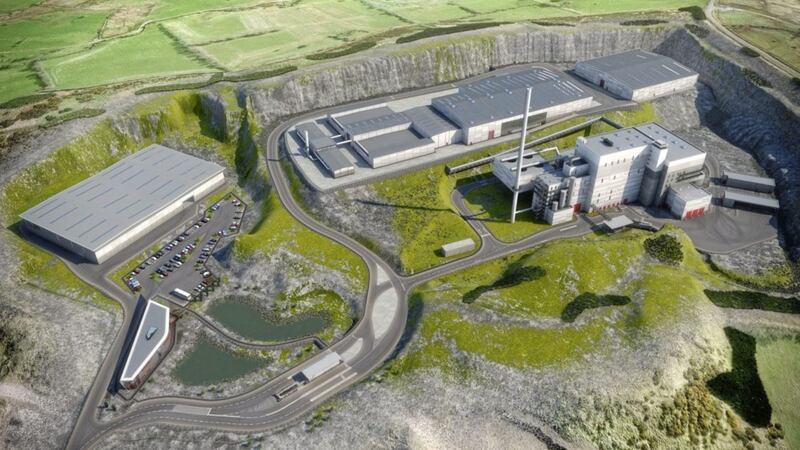A NEW report claims it is "an environmental and economic imperative" that the controversial incinerator project proceeds at Hightown Quarry near Mallusk.
The study by advisers Grant Thornton into the £240m arc21 project says it is "an essential element of Northern Ireland’s waste management plans and a significant economic enabler funded by foreign direct investment at a time when public finances are severely limited".
The facility, one of the biggest in Europe, aims to divert thousands of tonnes of waste from landfill.
It was first mooted more than a decade ago but has been stalled by a series of legal challenges and the three-year hiatus at Stormont.
The report examines the strategic imperative for the infrastructure project at a time when local government finances are under severe pressure and the ability to landfill waste is reducing significantly.
The arc21 project is designed to deliver a sustainable approach to the north’s residual black bin waste and divert it from landfill.
Grant Thornton research estimates the cost to local councils in the north of exporting significant amounts of household waste to other parts of Europe to be £16 million a year.
Alongside this, the analysis of landfill taxes and gate fees suggests that despite the highest level of recycling recorded in Northern Ireland at more than 50 per cent last year, the annual cost to councils of sending a significant proportion of the remaining largely unrecyclable black bin waste to landfill is still more than £30m.
Andrew Webb, chief economist at Grant Thornton, said: “Northern Ireland faces a significant challenge to manage its waste in a more environmentally and economically sustainable way, and the current approach of both landfilling and exporting our waste for the value to be extracted elsewhere is not a legitimate or sustainable long-term solution.
“The arc21 residual waste project offers a compelling solution in line with modern international best practice for environmental protection and climate change mitigation.
“And the fact that this public infrastructure will be delivered through foreign direct investment at a time when public finances are severely limited is also significant.”
The report says the proposed £240m inward investment will support around 340 permanent direct and indirect jobs when the plants are operational and create or sustain 2,700 direct job years of employment, which equates to £58m of additional wages in the economy.
When factoring direct, indirect and induced impacts, total benefits from the construction phase could amount to the creation or sustainment of 6,045 job years, £122m of wages and £215m of gross value added.
John Ahern, business development director of Indaver, the private sector investor bidding to build the Becon project for arc21, said: “We remain committed to this substantial investment and believe this shovel ready project could play a key part in the region's economic recovery.”







